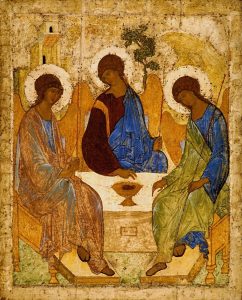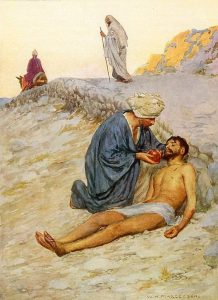People speak of the tyranny of ‘should’, the slavery of ‘must’, the compulsion of ‘ought to’ –
all the things I should be doing, the people I must see, the commitments I ought to honour!
All these lead us to get busy, and always busier, being constantly on the run, out of breath
and, at the end of the day, find ourselves empty and dispirited.
In today’s 1st reading (Ecclesiasticus 3:17-18,20,28-29) the wise man Ben Sirach offers us another lifestyle.
He gives us the picture or someone he qualifies as ‘intelligent’ and ‘wise’ as he says
“The mind of the intelligent man will ponder a parable,
and an attentive ear is the wise man’s desire.”
Pondering, being attentive, in other words:
pausing, taking time, reflecting on serious matters and important issues.
Looking at life and events and finding the true purpose of our human existence…
Those looking for a slogan for a poster would start writing:
STOP RUNNING – START THINKING !
The perfect ad to stop people in their tracks and, perchance, direct them to the path of the wise!
Note: Another reflection is available on a different theme in French at: https://image-i-nations.com/22e-dimanche-de-lannee-c-2019/






 This is precisely the point of Jesus’ parable in today’s gospel text (Lk.11:1-13).
This is precisely the point of Jesus’ parable in today’s gospel text (Lk.11:1-13).




